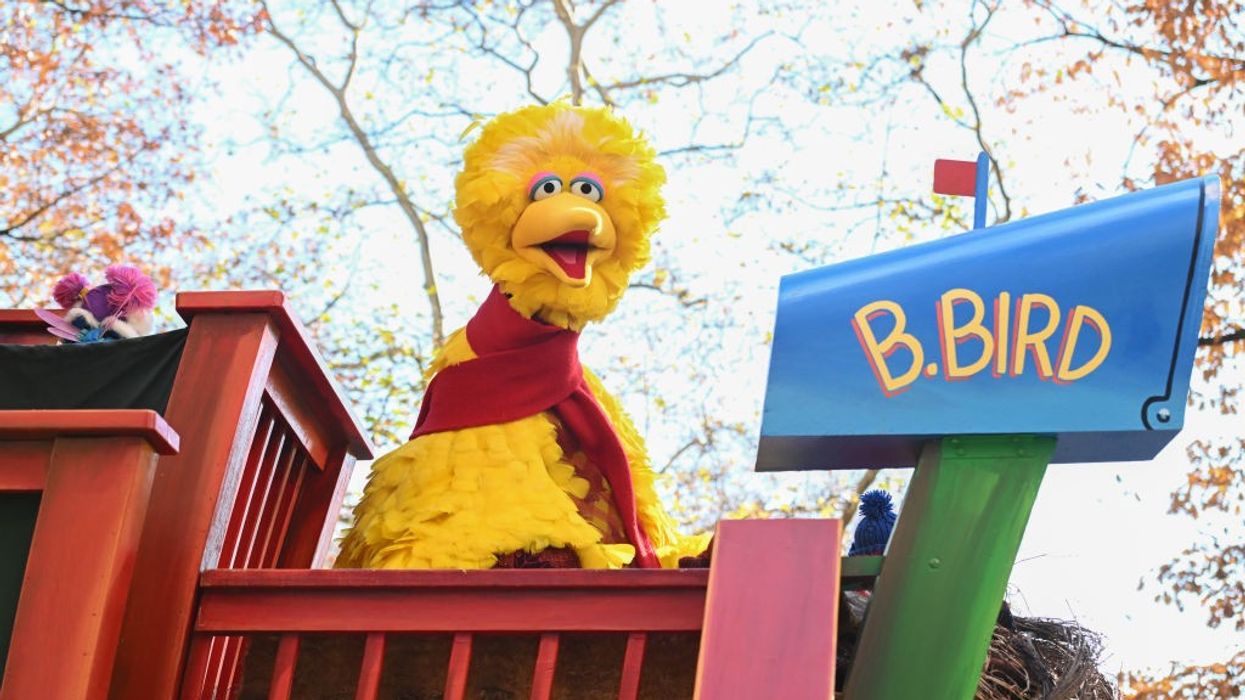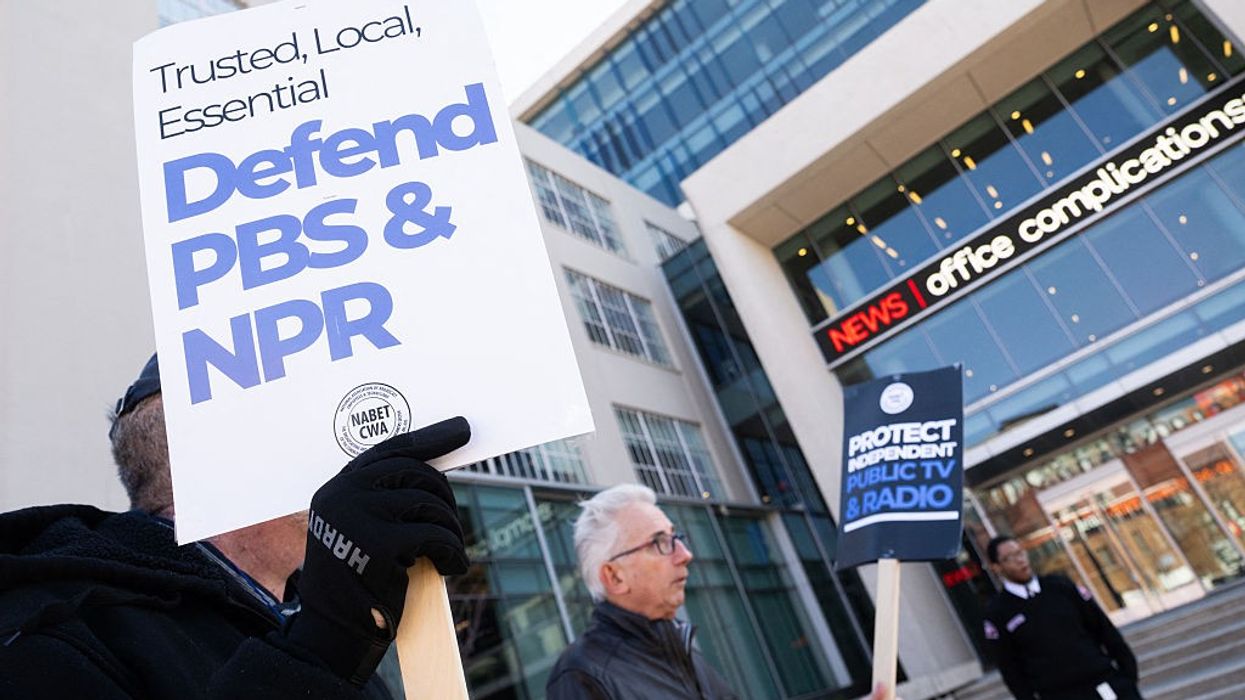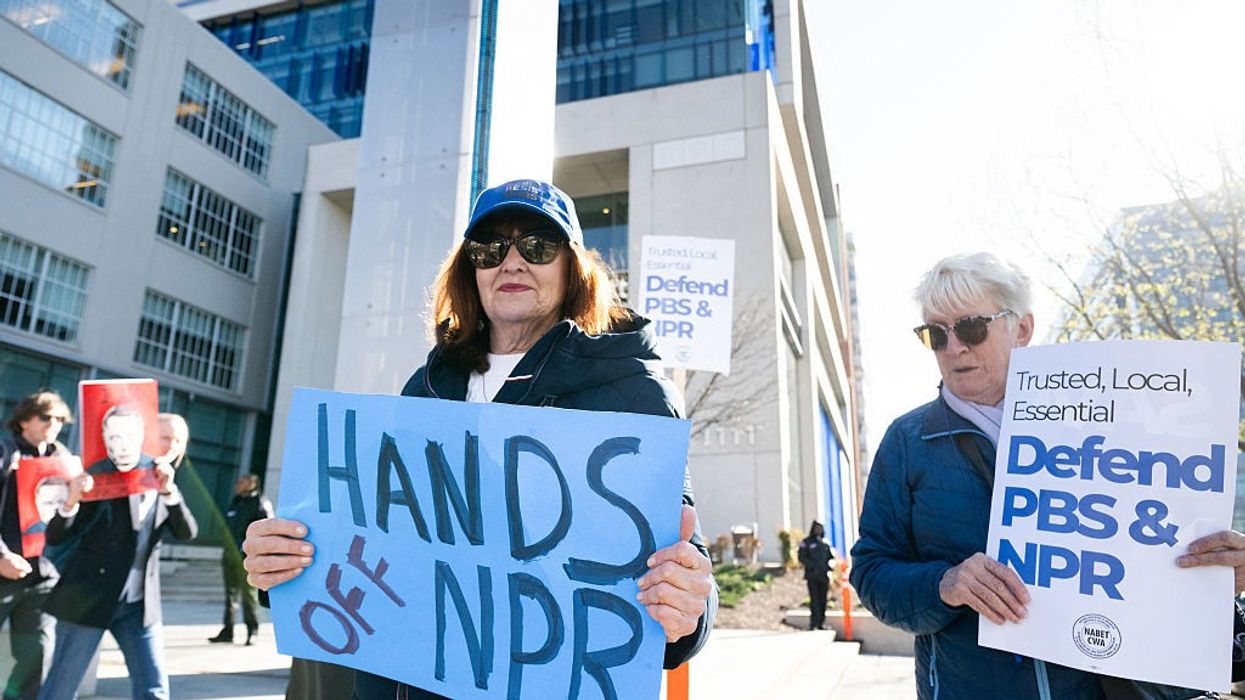Corporation for Public Broadcasting to Shut Down After Trump-GOP Defunding
"For nearly 60 years, CPB has carried out its congressional mission to build and sustain a trusted public media system that informs, educates, and serves communities across the country," said the organization.
The organization that has been funding public media in the United States for more than half a century said on Friday that it is shutting down its operations.
In a press release, the Corporation for Public Broadcasting (CPB) said that "it will begin an orderly wind-down of its operations following the passage of a federal rescissions package" that clawed back more than $1 billion in previously approved funding for public broadcasting. President Donald Trump, who pushed for the rescissions, signed the package into law last month.
CPB also cited Senate Republicans’ release of an appropriations package that excluded public broadcasting funds "for the first time in more than five decades."
"For nearly 60 years, CPB has carried out its congressional mission to build and sustain a trusted public media system that informs, educates, and serves communities across the country," said CPB. "Through partnerships with local stations and producers, CPB has supported educational content, locally relevant journalism, emergency communications, cultural programming, and essential services for Americans in every community."
The majority of staffers at CPB will see their employment end after this coming September, though the organization plans to keep a small crew of employees on board through January "to ensure a responsible and orderly closeout of operations."
CPB President and CEO Patricia Harrison described the decision to shut down as a "difficult reality" and praised the role that the organization has played over the years in educating and informing Americans.
"Public media has been one of the most trusted institutions in American life, providing educational opportunity, emergency alerts, civil discourse, and cultural connection to every corner of the country," she said. "We are deeply grateful to our partners across the system for their resilience, leadership, and unwavering dedication to serving the American people."
Throughout its existence, the CPB was responsible for distributing funds to regional National Public Radio and Public Broadcasting Service stations across the United States. These stations would air both local content relevant to their specific markets as well as nationally syndicated shows including "Sesame Street," "NOVA," and "Frontline."
Earlier this week, Kate Riley, the president and CEO of America's Public Television Stations, lambasted Republicans on the Senate Appropriations Committee who failed to restore CPB funding.
"With this vote, the Senate Appropriations Committee missed an opportunity to extend a desperately needed lifeline to local public media stations that are already cutting essential services and staff and, in some cases, planning for their closure as a result of the rescissions of public media funding earlier this month," she said.
She went on to say that the negative effects of the cuts to public broadcasting are "real and imminent" and have "already begun to dramatically impact the vital services that local stations provide to communities across our country."
"This bill was an opportunity to acknowledge the dire situation that local stations are in and reverse their devastating fate," she added. "Instead, today the Senate Appropriations Committee turned a blind eye to local public media stations and the communities that rely on them for critical services."


